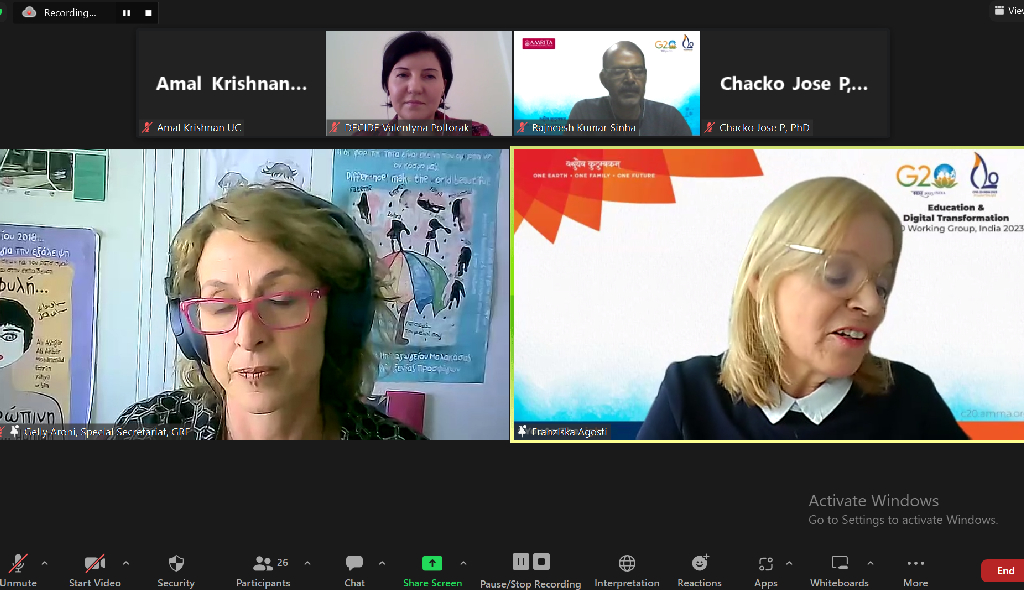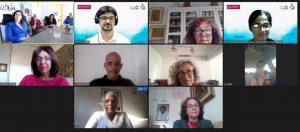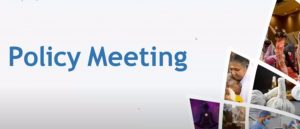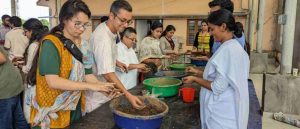A second virtual seminar on the theme Education in Emergencies focused on how events such as conflict, natural disasters, and pandemics disrupt education systems. Organised by the Education and Digital Transformation (EDT) working group, more than 45 people took part and included representation from India, the United Kingdom, the United States, Nepal, Switzerland, Ukraine, Greece, and Malaysia.
The moderator, Franziska Agosti, contextualised the importance of education in emergencies, since it disrupts development of foundational skills and knowledge transfer to children to ensure learning continuity.
The distinguished speaker, Dr. Gelly Aroni is an expert and trainer at the European Wergeland Centre (EWC) in Oslo, Norway. She shared her insights on the economic crisis in Greece and stressed on the point that funding for education is a significant challenge during any crisis. She added that efforts of all stakeholders must be synergised to support continued education to help children gain some semblance of stability and normalcy during emergencies.
Dr. Aroni drew attention to the point that during an emergency, it is crucial to create spaces within the refugee camps to ensure the availability of community teachers. This is crucial to provide a supportive environment for the refugee children, including to monitor and handle all health and nutrition needs.
Next, she emphasised that it is essential to keep in mind the transition from emergency education settings back to the mainstream school setting. Educators need to support the host communities by creating a space at schools where children are received with a sense of “security, consistency, and emotional containment.”
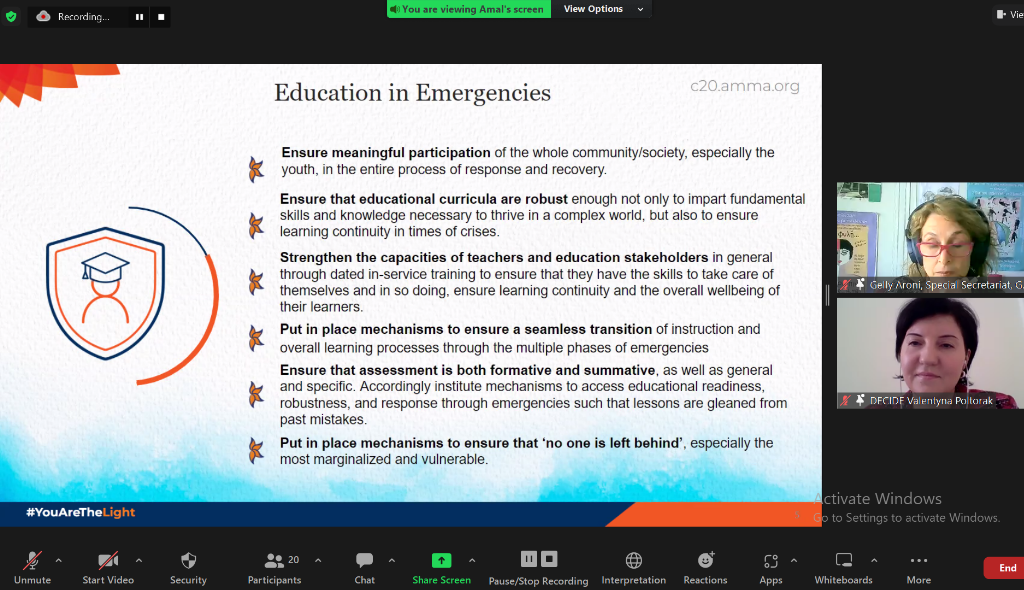
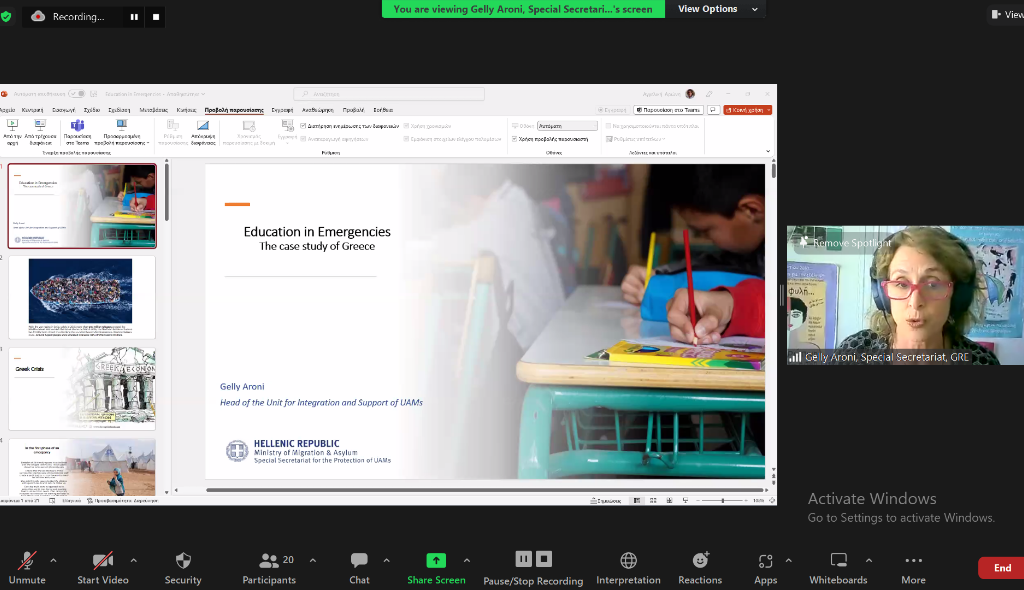
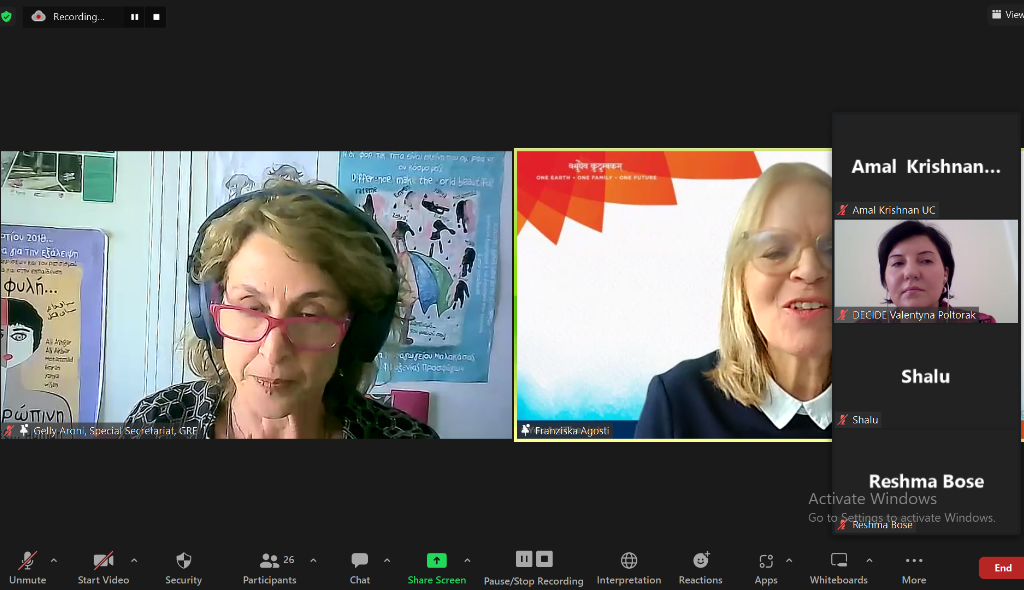
Another essential point Dr. Aroni made was the need to adequately address and support the psychosocial needs of refugee children. This includes teaching and learning, diversified curricula, pedagogical methods adopted, and appropriate materials to support educational needs.
She also said that alongside education, there is a need to address governance, the culture of the schools, universities, religious institutions, societies, NGOs, and the support of refugee parents, including efforts to synergize these diversified roles. The responsibility must be shouldered by the host country, in addition to other nations.
